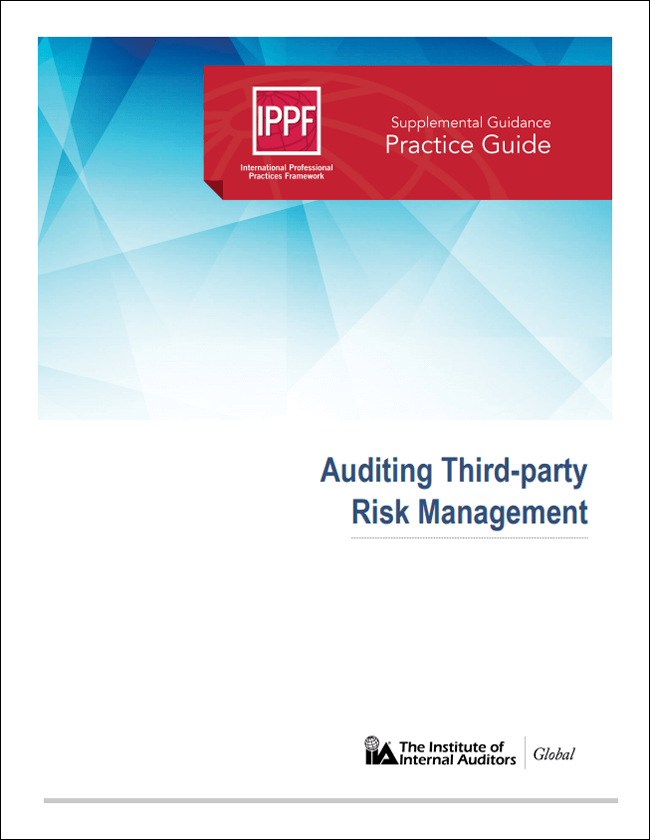Practice Guide: Auditing Third-Party Risk Management
Guidance | October 15, 2018
Copyright Notice All content is protected by international copyright laws. You may reference or quote small portions of this document with proper attribution to The IIA, but unauthorized reproduction, distribution, or use beyond that, other than for your own personal use, is strictly prohibited and may constitute a violation of copyright law, resulting in civil and criminal penalties. Contact copyright@theiia.org for permission to use our materials.

This practice guide is a useful tool to become better informed on risks related to third-party provider management. Risks across the full vendor life cycle are considered, including the appropriate sourcing, ongoing management, and termination of vendors.
Further exploration into risks resulting from the types of services being provided and the sensitivity of data being shared is covered. Sample audit guidance is offered, making this a robust resource with tangible tools.
Topics include:
- Outlining key roles, responsibilities, and risks in managing third-party providers.
- Defining a third-party risk audit coverage approach.
- Developing a structure for scoping, planning, and executing third-party risk audits.
- Appropriately engaging and assessing third-party risk management activities across the business, oversight, and control functions.
- Determining whether the organization has a third-party risk management structure that results in a “patchwork” approach, and, if so, how to bring it together into an enterprisewide framework.